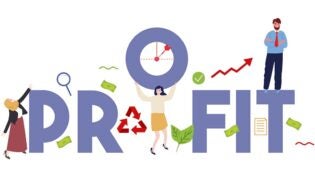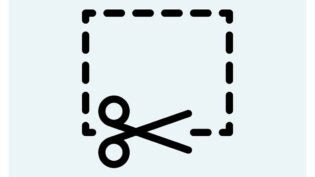Home > Finance > Pricing Strategy >
Why You Should Consider Giving Your Product Away for Free
By: YEC

In June, my company Testive announced that we were dropping the pay wall on our online SAT and ACT prep products. No limits. No locked content. No ads. Don’t be confused—we did this to grow our business, not shrink it. So far it’s working—we’ve had record sales every month since then. Here’s what we learned.
You have more levers to make money than you think.
Testive helps students improve their scores on major exams like the SAT through a combination of an adaptive online learning platform and a coaching service. Our technology helps students increase their test scores faster, and our coaches make sure students stay on track and stick to their plan.
Prior to our announcement, you could get an account on the website and a few free questions every day. We had a pay wall for access to unlimited questions or unlimited questions plus a personal coach. However, the students who saw consistent increases were the ones who had coaching, because they were more likely to create and stick to their study plan.
We decided we wanted to make our money from the part of our offering that drives the most value. We believed that getting more students using our service would highlight the importance of our coaching and drive sales, rather than diminish them.
What your customers think of you is important.
We are in an industry where customers have many options. So we have to excel.
Some online tools offer a functionality you just can’t get anywhere else. In those cases, simple access to that functionality may be enough to grow. For example, enterprise software is notoriously hard to use because there just aren’t better options out there.
In our case, there are lots of ways to improve your SAT and ACT scores. Even if the other options are more expensive, less convenient and less effective; customers know they have options. What they don’t have is time to test these other options. Most would rather risk buying something less effective but known. As a result, in our industry customers can’t just like you. They have to love you. We also face negative referrals. A bad customer experience doesn’t just die away, parents will actively warn others about bad educational services.
Since we are driven by referrals, we wanted to create an experience that was as easy as possible for customers to promote to their friends. The biggest complaint about our online product had always been the question cap. Notably, no one ever complained that we sold coaching services or about the price of coaching. We decided that maximizing the happiness of the most customers was our best path to growth, even if we left some short-term money on the table.
Going free means losing control of important parts of your funnel.
Like most online products, we spent many nights contemplating the mechanics of how to get users to refer their friends. When we had question caps, the basic way we drove referrals was giving referrers and their friends extra questions. We tracked the data religiously and tweaked it every cycle to maximize referral rates.
Going free certainly generated more direct traffic to our site. We presume that most of those visitors heard about us casually from friends offline, but now we can’t track it. As a result, it’s more challenging to understand the exact nature of referrals and how to increase them.
It pays to look to other industries for success examples.
We are always trying to find metaphors and approaches to customers that help us improve our offering. However, our model is so different from most education companies that we find ourselves having to combine examples and approaches from other industries.
Testive joins other technology-empowered services that re-engineer the service delivery model to make it more efficient via a combination of technology and people. Companies like Retrofit (for personal training) and Bench (for accounting) are great examples of this approach.
Free, unlimited access is an approach we pulled from media companies. They give away free content in order to attract large a number of viewers. In that case, their product is the user—whose attention and/or contact info is then sold to advertisers. We believe the same model of creating a great user experience, in this case personalized test prep, can drive users and word of mouth marketing to help attract new paying users.
Our difference is that we don’t sell access to our users. For sales we look to successful B2B companies, like Hubspot or Yesware, who use great free tools and content to help educate customers about the power of their services.
In the end, your market and your customers will tell you the right choice.
By the time there is enough information to make a decision with perfect certainty, it’s well past too late. A mentor of mine, Nick Francis at HelpScout, gave me my favorite piece of advice: “Listen to your market, it’ll tell you the right thing to do.”
We did just that, and it turned a tough decision into an easy one that paid off for consumers and us alike. You’ll never have enough data to know for sure if going free is right for you before you try it. But if you think about your users, all the ways to make money and consider examples from beyond your own market, free is a path that can really pay off.
This article was originally published by Startup Collective
Published: December 1, 2014
2640 Views
2640 Views












